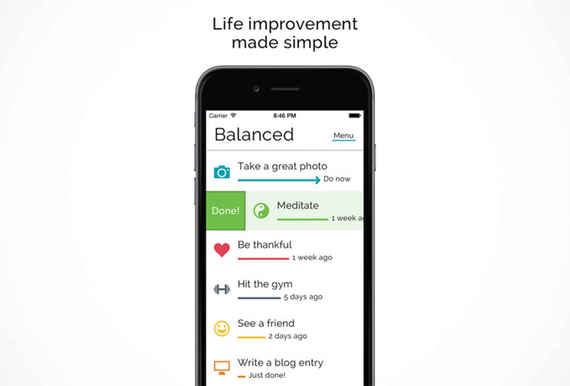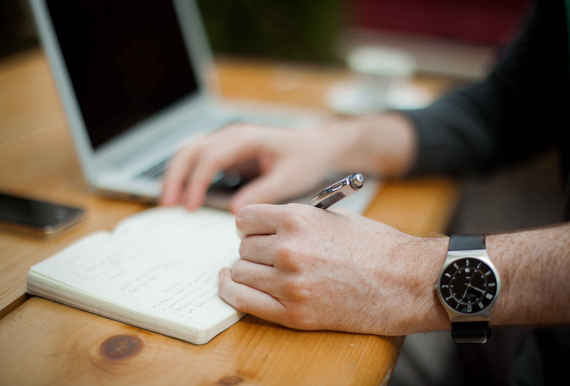By: Joe Oliveto
"Nine to five." It might have meant something in your parents' day, but now it's just another awkward, outdated phrase, like "the bee's knees" or "I'm voting for Nixon."
Our digital age has been sweet, but the price of permanent connection is an inability to go home and leave your work behind at the end of the day. To give some hope to those of you who can't help but check emails every half hour, I looked into current research and reached out to professionals for advice on how to disconnect from our jobs without retreating to a monastery.
Prioritize your time off like any other task
There's a reason you always remember to finish your work tasks but often forget to have real fun -- our work duties are part of a set schedule, making them much easier to keep. Roy Cohen, career coach and author of The Wall Street Professional's Survival Guide, advises workers to treat their personal time the same. "Schedule your time out," Cohen says. "We are less likely to break a date with ourselves if it's a standing date."
It may feel awkward to enter "Half hour of pwning noobs on Call of Duty" into your calendar, but it'll help you make sure you actually stick to that plan.
Delegate responsibilities so you can forget about them
You have coworkers for a reason. That reason is not simply to have happy hour companions. Cohen encourages stressed-out professionals to "delegate and establish priorities." Letting your staff or team members take on some responsibility not only gives you a break, but lets them grow as employees. It's a lot easier for you to chill at home when you're confident that someone else is making sure the office doesn't burn down.

Credit: Flickr/Mitchell Joyce
Get into mindfulness meditation
I sing the praises of mindfulness meditation a lot -- because it works. But don't take my word for it; science is on board. As Debra Burdick, author of Mindfulness Skills Workbook, says, "Practicing mindfulness helps you stay in the present moment... instead of thinking about work when you are not at work you can pay attention to where you are and what you are doing."
David Gelles, New York Times business reporter and author of Mindful Work: How Meditation is Changing Business from the Inside Out, agrees, telling me that mindfulness "gets us off the hamster wheel in our head. Instead of obsessing about what we could have done better last time around, how we're going to handle whatever comes up next, or who is on our nerves, mindfulness allows us to focus on what's happening right here, right now. For anyone who spends too much time in their own heads -- or too much time online -- that's a valuable thing indeed."

Credit: iTunes/Jaidev Soin
Use an app to form better habits
If disconnecting yourself from your smartphone sounds terrifying, you can at least use it to help disconnect from work. Download an app like Balanced (free for iOS) to schedule out your daily well-being tasks. You've got enough things in your life reminding you to get your work done. Balanced will remind you to relax.
Balanced is not yet available for Android, but HabIt! is a solid, free alternative.
Journal about work stress to let it go
Journaling about your worries, whether they be related to self-image, life struggles, or work challenges, can not only greatly diminish stress levels, but also aid in problem-solving. Reap the benefits by spending some time during your break, or right when you get home, putting your thoughts down on paper to clear them from your mind.
It's way better than sharing them on social media.
More from Supercompressor:
Like Supercompressor on Facebook: www.facebook.com/Supercompressor
Also on HuffPost:



